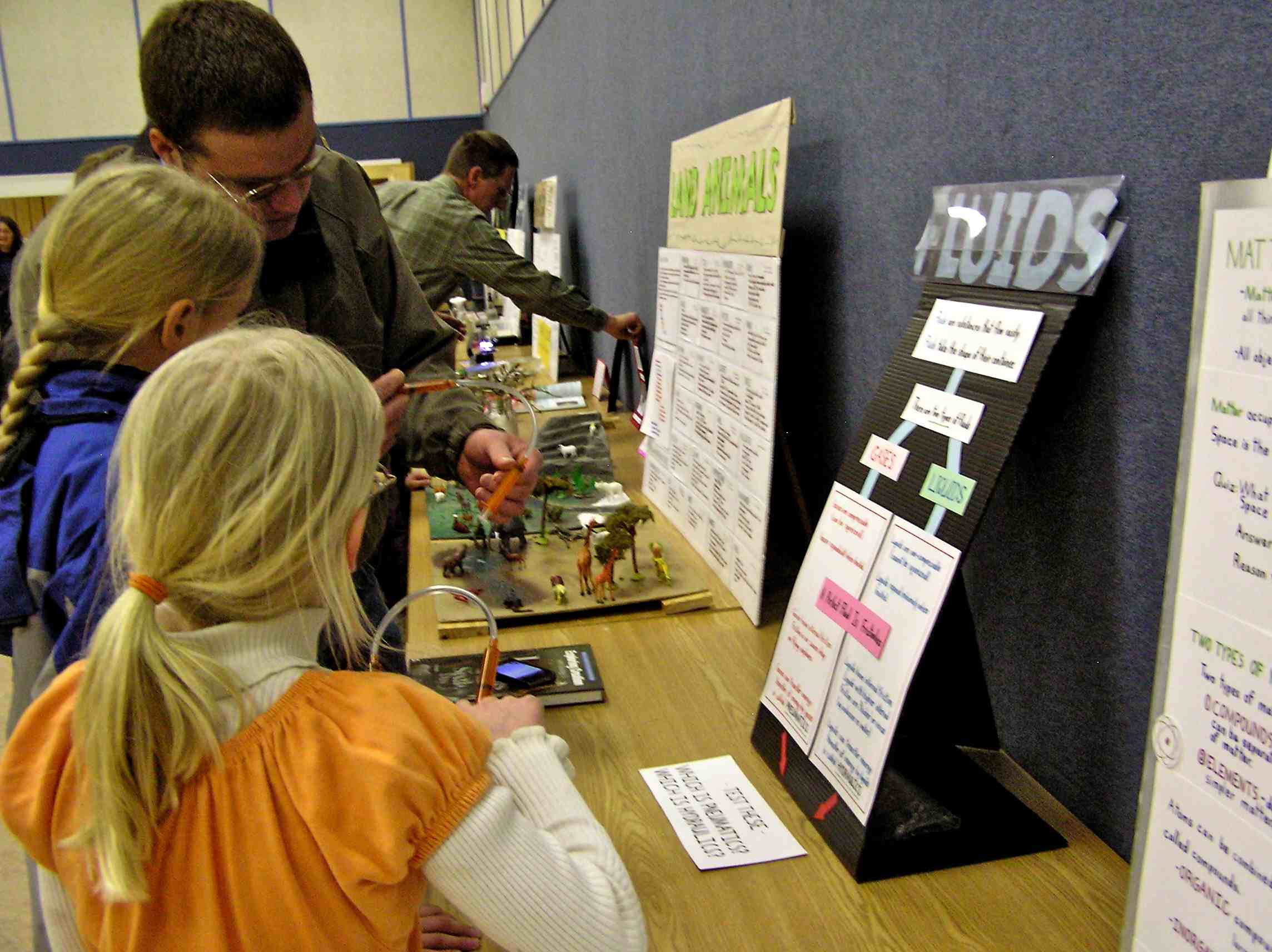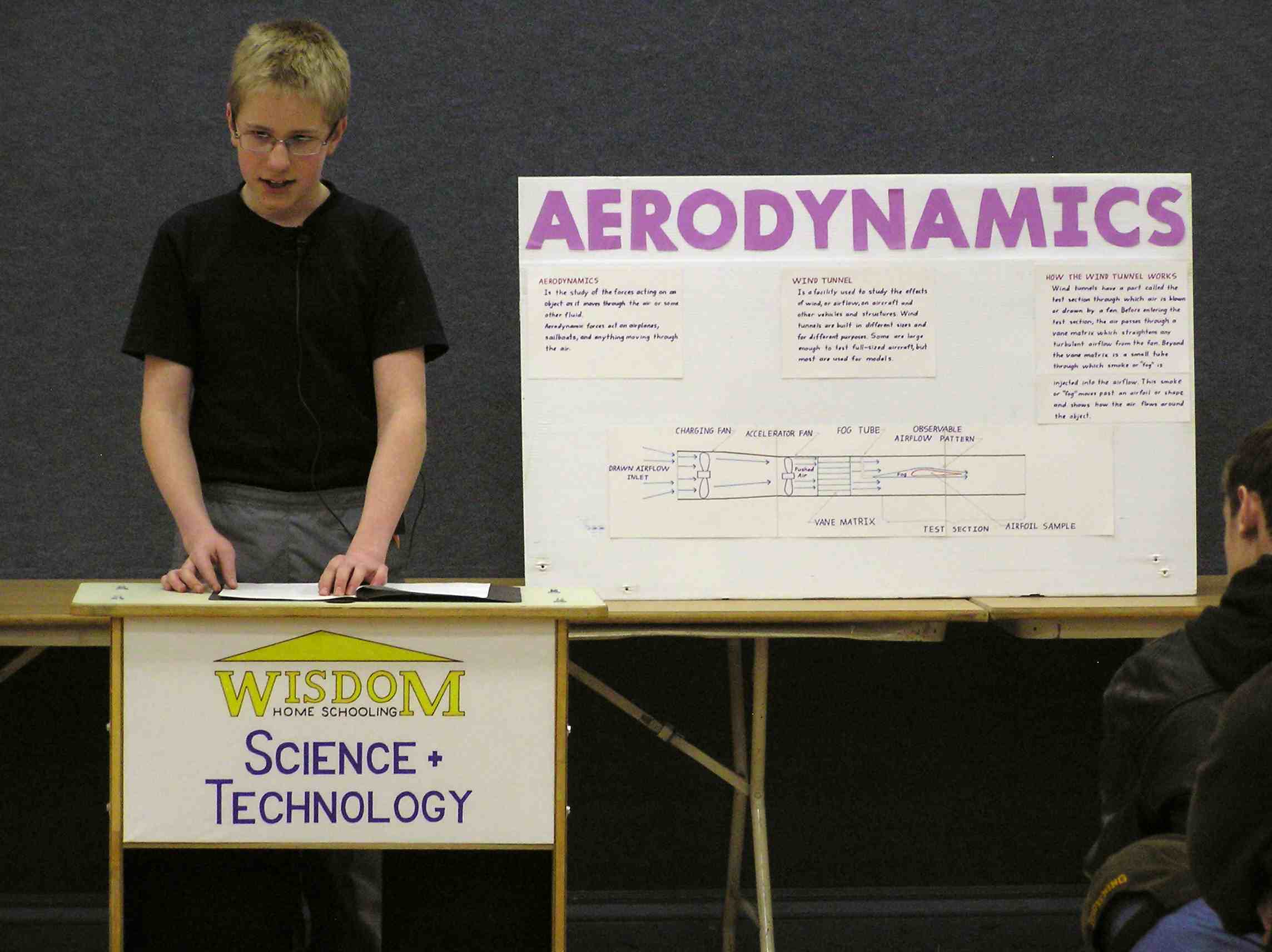When people seek more information about the science and technology event, one of the first questions that I hear – with a tone of apprehension in their voice – is: “Is this a science fair?” The answer I give is “no” – to which I hear a sigh of relief.
A science fair is usually run as a competition, having a guiding set of rules and methods. In a home education environment, you have freedom to approach your study of the sciences according to your preference and needs. Each setting and each student is different. Therefore there is no value in attempting to ‘compare’ one setting or student against another when topics and aptitudes are so beautifully diverse.So, what are science and technology events for? These events are for making friends and building relationships. Really! They are opportunities for students to meet other students and share their learning with each other. In doing so, common and contrasting interests are explored. Questions, discussions and conversations arise and friendships are born. People begin to learn from one another. This all happens in an environment where science and technology is the topic. The excitement builds!How do we run these events? We use these events as an opportunity for our children to ‘teach’ what they have learned. If you can teach something well, you likely have mastered the subject. The event is not the goal. Understanding and expressing your learning – with excellence – is the goal. The event is merely a venue in which to make such an expression. The expression can be very simple or very complex. In either case, we celebrate the learning that has been done.For those who like a few directions, we don’t mind sharing the way we approach each subject. Generally, we take all the important aspects of each topic of study and compile them into a concise but understandable display. The main points are listed and described. We practice printing and spelling, along with illustrational art – all done manually. Then we add some supporting display exhibit items that can be interacted with. We avoid using electronic devices that could lead to entertainment activities rather than learning activities. The younger students practice explaining their work from memory. The middle students write a 500 word report that can be delivered as an oral presentation, pointing to their display work.  The older students are encouraged to use scientific methodology and to give supporting calculations and references in their work.Our displays are built so that we can store them and retrieve them at any time throughout the year, enabling us to use them for review, for teaching our younger children, or just for fun and inspiration.Do we leave our children to tackle this on their own? Not at all. A professor will mentor his undergraduates and intervene to help them perfect their understanding and their work. So also, we as parents mediate our children’s learning. We believe that they will make better and more enjoyable progress by being guided in discovery, to deeper understanding and directing them toward excellence. Sometimes we coach them. Sometimes we hold their hand and lead them. We explore the wonders of God’s marvelous design – together.
The older students are encouraged to use scientific methodology and to give supporting calculations and references in their work.Our displays are built so that we can store them and retrieve them at any time throughout the year, enabling us to use them for review, for teaching our younger children, or just for fun and inspiration.Do we leave our children to tackle this on their own? Not at all. A professor will mentor his undergraduates and intervene to help them perfect their understanding and their work. So also, we as parents mediate our children’s learning. We believe that they will make better and more enjoyable progress by being guided in discovery, to deeper understanding and directing them toward excellence. Sometimes we coach them. Sometimes we hold their hand and lead them. We explore the wonders of God’s marvelous design – together.

